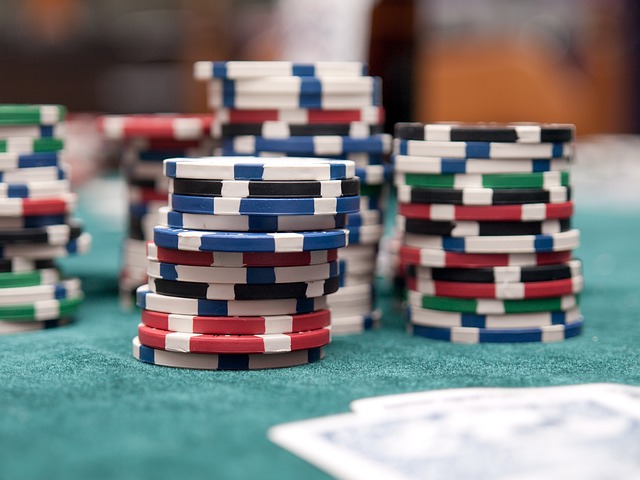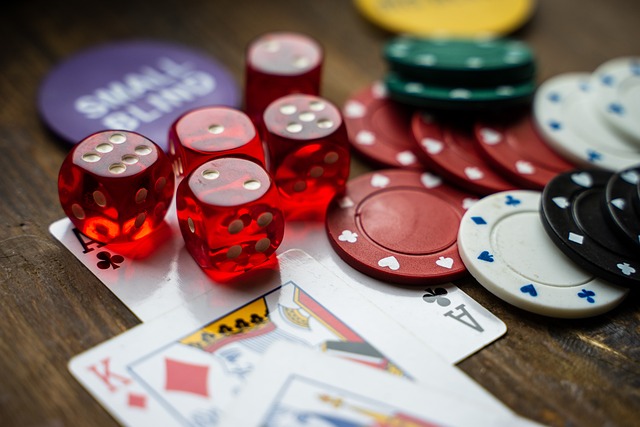Starting to play poker requires effort and dedication. There are hours of theory and practice to reach a good level of play, competitive in the ranks in which you move. Do you want to know how to start playing poker? In this article we give you some very useful tips.
So… How do you play poker for beginners? Poker works the same for all players. The rules are the same: two hole cards and five community cards (in Texas Hold’Em), and whoever manages to make the best possible combination wins. The only difference, usually, is that there will be less money at stake and less level in the rookie poker games.
But beware, that doesn’t mean you can’t find experienced opponents at the tables. Even if you are starting to play poker at low budget tables, you can face opponents with skill, it is less likely but possible. Imagine it as a Gaussian bell!
How to start playing poker? 5 points to control
When you start playing poker, it is very important that you do so at tables that are within your budget. There is no proof here, if you choose to play poker for real money, a bad bet or a bad beat will be a lost budget. The strategies to win at poker are a whole world, and the level of the competition advances at a forced march, but at an amateur level these are the five basic ones to start with.
Know the types of tables and tournaments
A very relevant premise and prior to starting to play poker is to know which table you are participating at. You have to know the difference between Twister, cash, sit and go or longer tournaments, as each one has its characteristics and game modes. Once you control which table you will play at, it will be key to choose your entry money, according to your bankroll.
The positions at the table
One point that newbies often overlook and old dogs take advantage of is table positions. You have to know that playing from the dealer will give you an advantage in the development of the game, and that the range of hands will not be the same if you speak first (UTG) or last.
The UTG can have up to 8 players pending to speak, so it should only play, in general, 10%-15% of top hands. If you are not conditioned by other considerations, you should be more cautious, as there is surely an opponent with a stronger hand to call. Instead, this is less likely to happen when you’re the small blind and there’s only one opponent left. There, a hand in the top 50% might be enough.
Understand the blinds and the timing of the game

When we ask ourselves how to start playing poker, this is one of the most frequent mistakes. If you start a Sit And Go game with 2000 points with the blinds at 10/20, you are not the same as when the minimum bets are 100/200 and only three opponents remain. The game is not the same when you have margin to play with 1000 blinds, than when you only have 10.
You are not alone: How to start playing poker with your rival
A very common mistake made by insiders is to face poker like someone who buys in a store. “I have X chips, Y play and the pot is Z”, at best. If I have a good hand I go, and if not, then I wait. That is an error. In a poker game, you will have rivals, and knowing how to read what they do is essential to beat them. Why don’t you play alone, in poker you compete against others.
Reading the hands of your rivals is essential in poker, in order to win pots not only with your own strength, but also with the weaknesses of others. In turn, a very frequent mistake when starting to play poker is not knowing how to put the plays in context. A pair of A on a dry flop is not the same as when there are four cards of the same color and you have a ‘rock’ in front.
Flirt with the calculation of probabilities
It is not necessary (or is it?) to play with a calculator in hand, but it is very interesting to have an idea of your ‘odds’ and probabilities. Detecting which hands have potential and not just the strength they have at the moment, is key to having a holistic vision, and it is something that may be missing when you are still wondering how to start playing poker.
So… what does it take to be a good poker player? To play well in an amateur context, it is key to understand the game in a comprehensive way. Probabilities, analysis of the rivals, the situations, and the ‘momentum’ of the game, such as the available ‘stack’ and how the blinds are.
How to start playing poker? Available options
When we talk about poker we usually refer, specifically, to Texas Hold’Em. There are many other variants and types of poker such as Omaha, Omaha Hi-Lo or 7 Card Stud among others, but usually the most popular is overdraft. To play Texas Hold’em at Sportium, all you have to do is sign up and make a first deposit to start playing. The ideal when starting to play poker is that the table is according to your level and budget.
What offer is available?

Twister Poker: This variant consists of fast three-player tables, with a random prize table based on buy-in and position. You can win up to €500,000!
Sit and Go: These are the more conventional tables, with between 6 and 9 players. The entry paid by the players accumulates as a prize, and will be divided with the participants based on their position.
Cash: Here you play directly with your bankroll. Whereas in the Sit and Go you play with the chips, here each victory or loss will be added or subtracted, respectively, from your bankroll.
Tournaments: In tournaments a much higher number of players usually participate, with which the game lasts much longer, and players are eliminated and tables are added. But obviously, the prizes are more ambitious.
Getting started in poker: PRO from one day to the next?
You are interested in poker, but there is a question that assails you… How long does it take to learn to play poker? The answer is very relative. Although it is indicated between 12 and 24 months to reach much of your potential, it can be much faster or slower, depending on the innate capacity for the game, or the hours invested.
Someone who plays several hours a week, and when they are not playing, reads poker blogs, watches tournaments or even reads books on the subject, is not the same as someone who comes in to play during dead time. Nor will the learning curve of someone who mainly plays poker be as fast as someone for whom the game is secondary.


